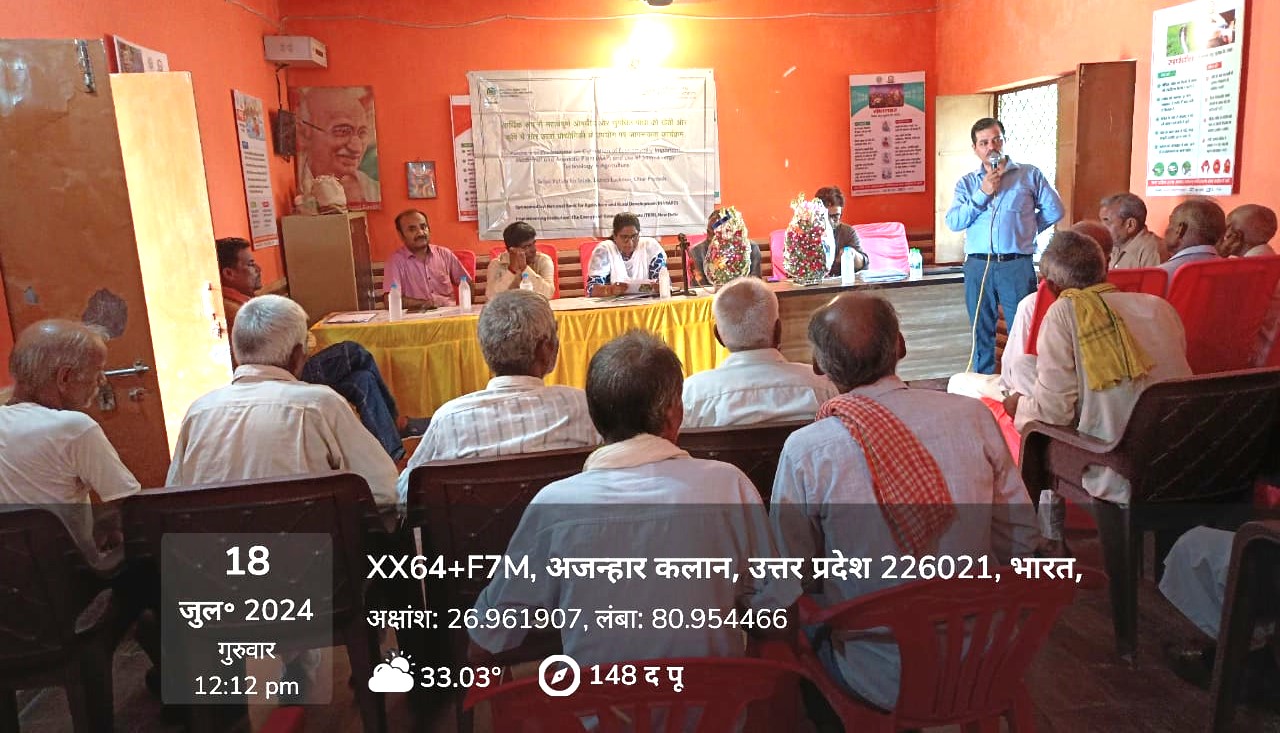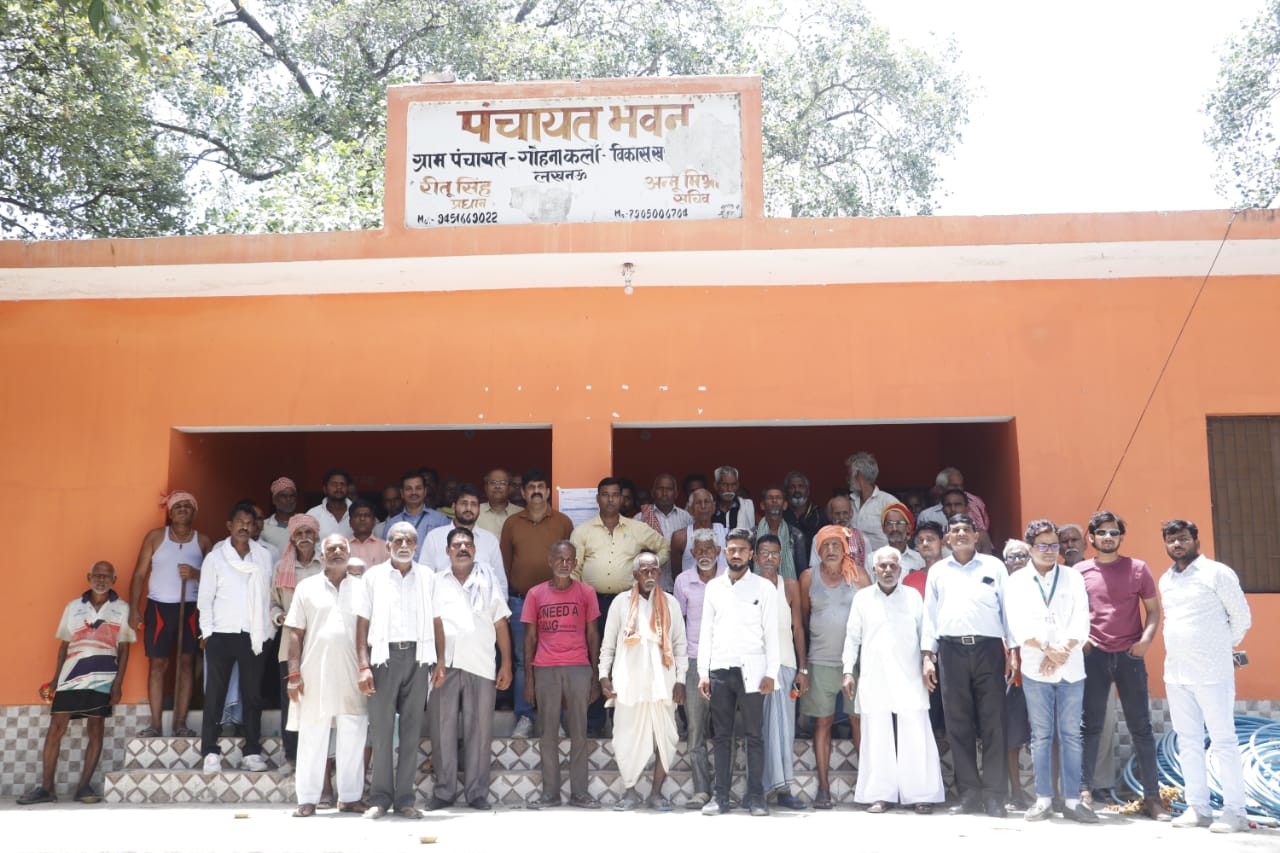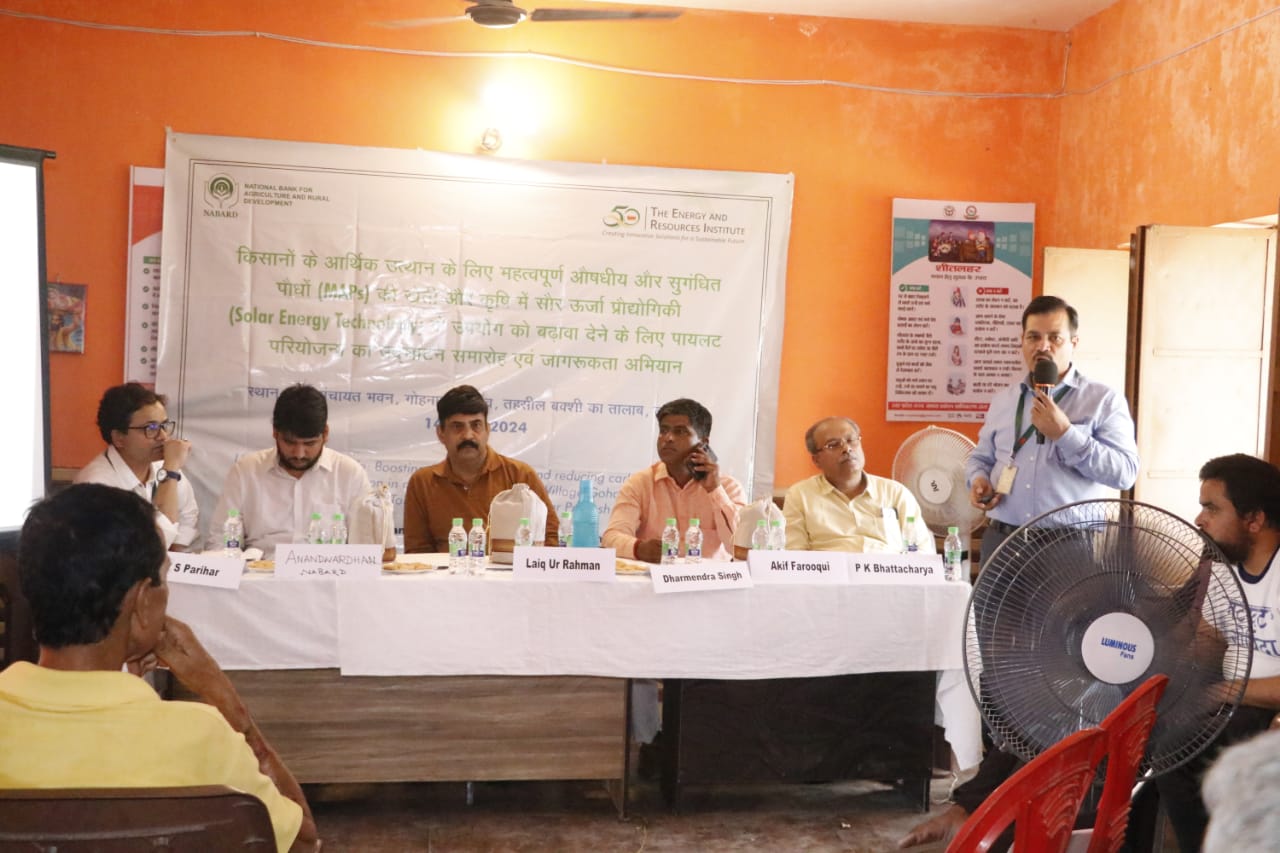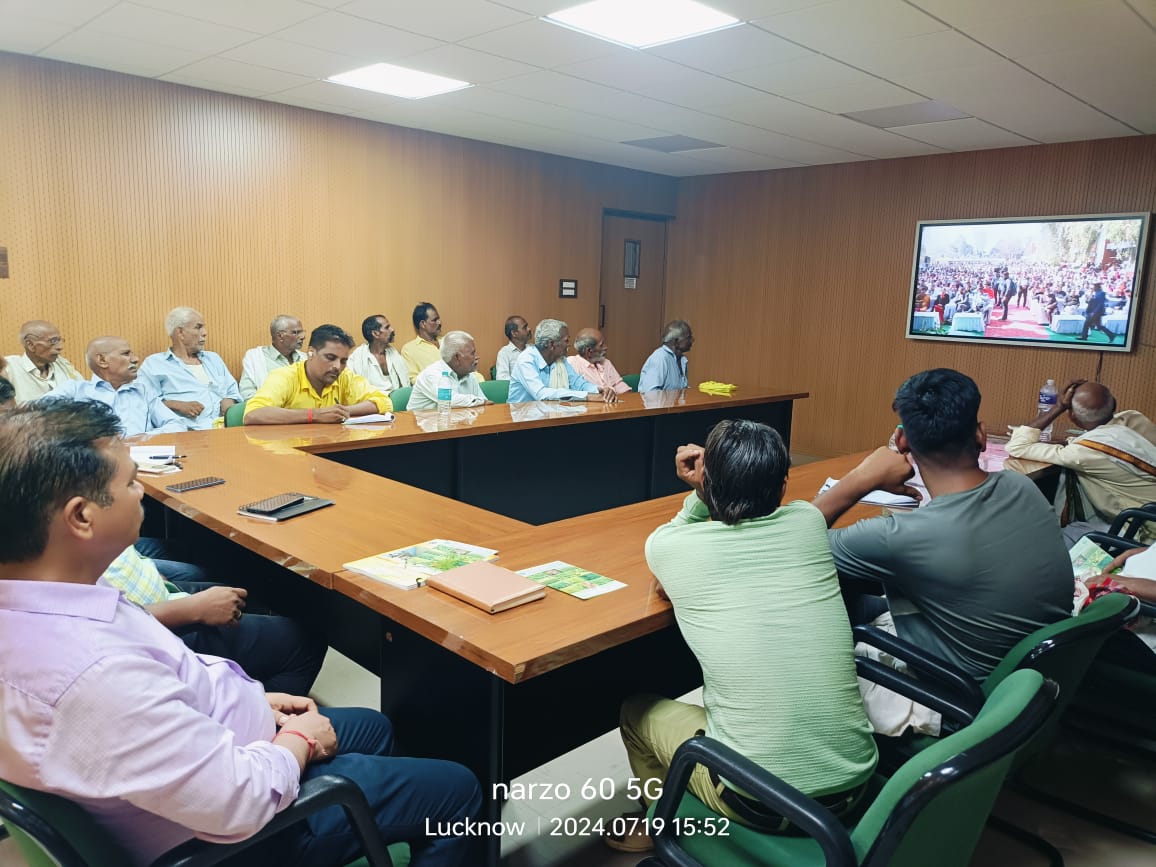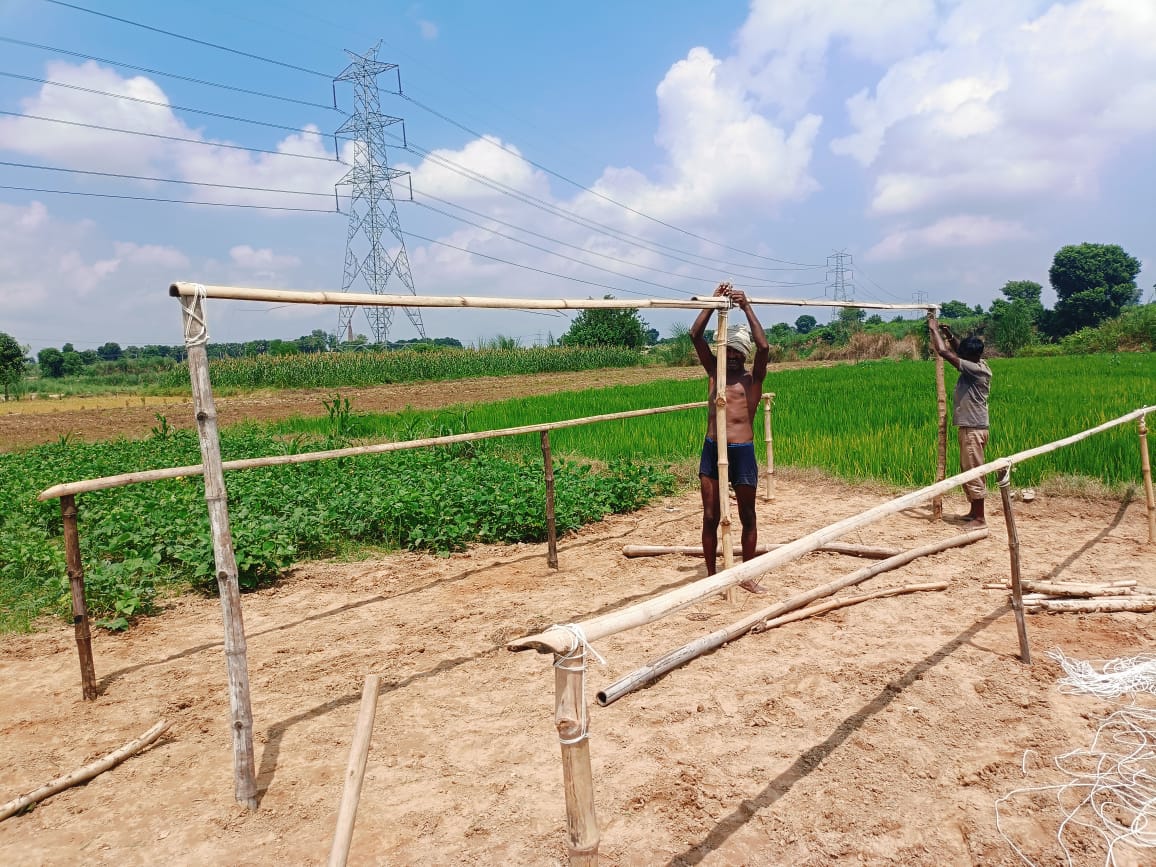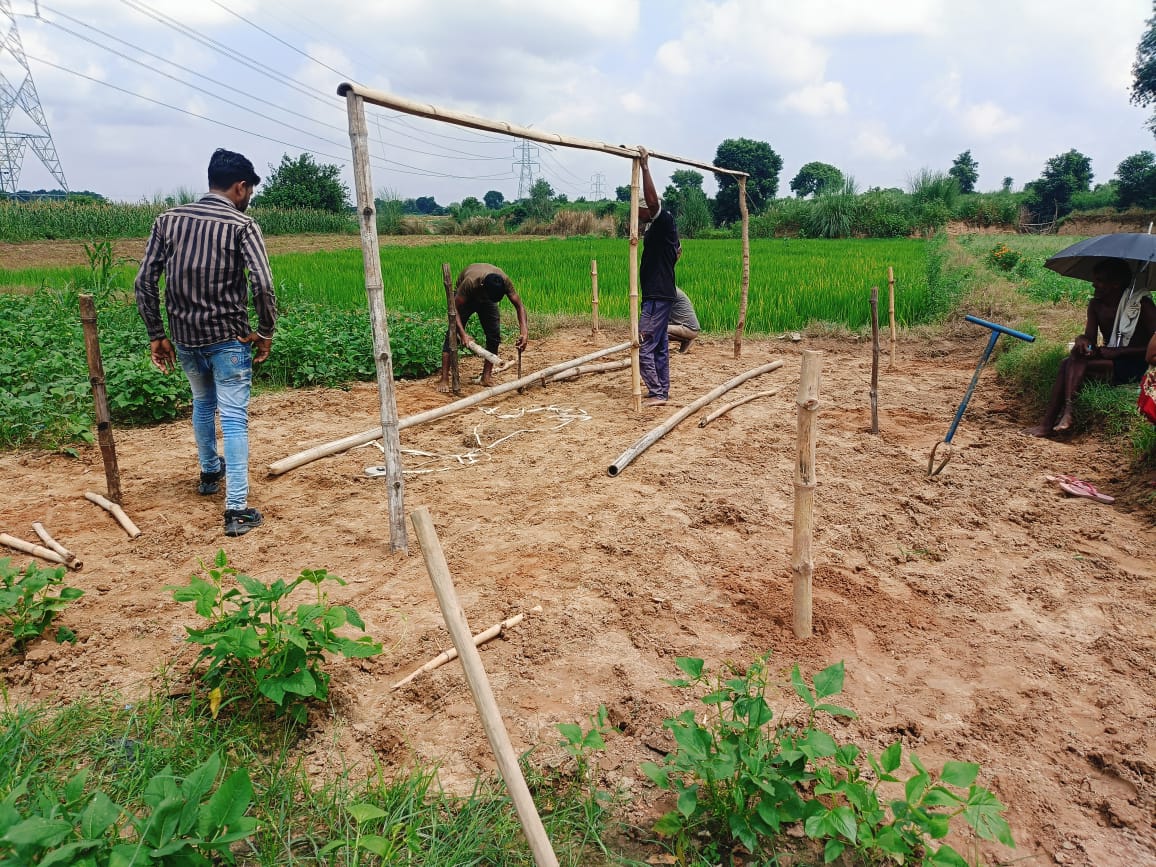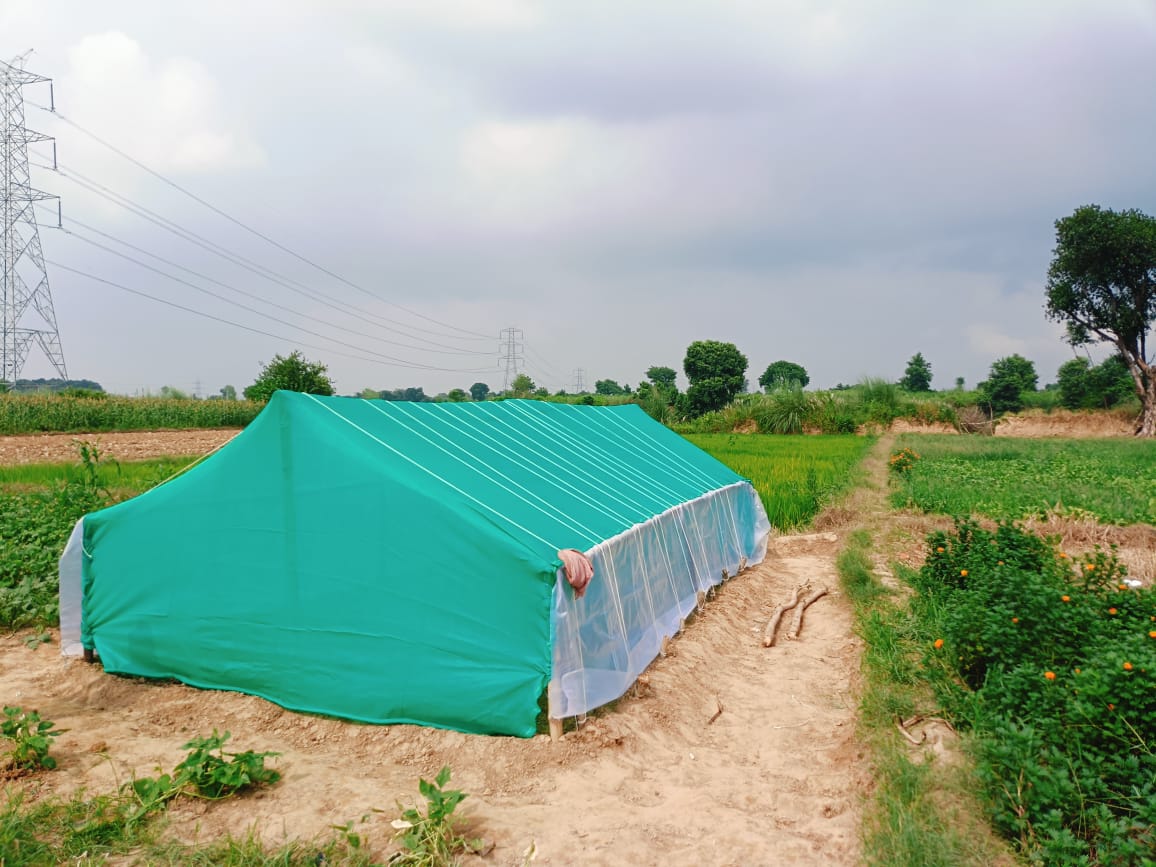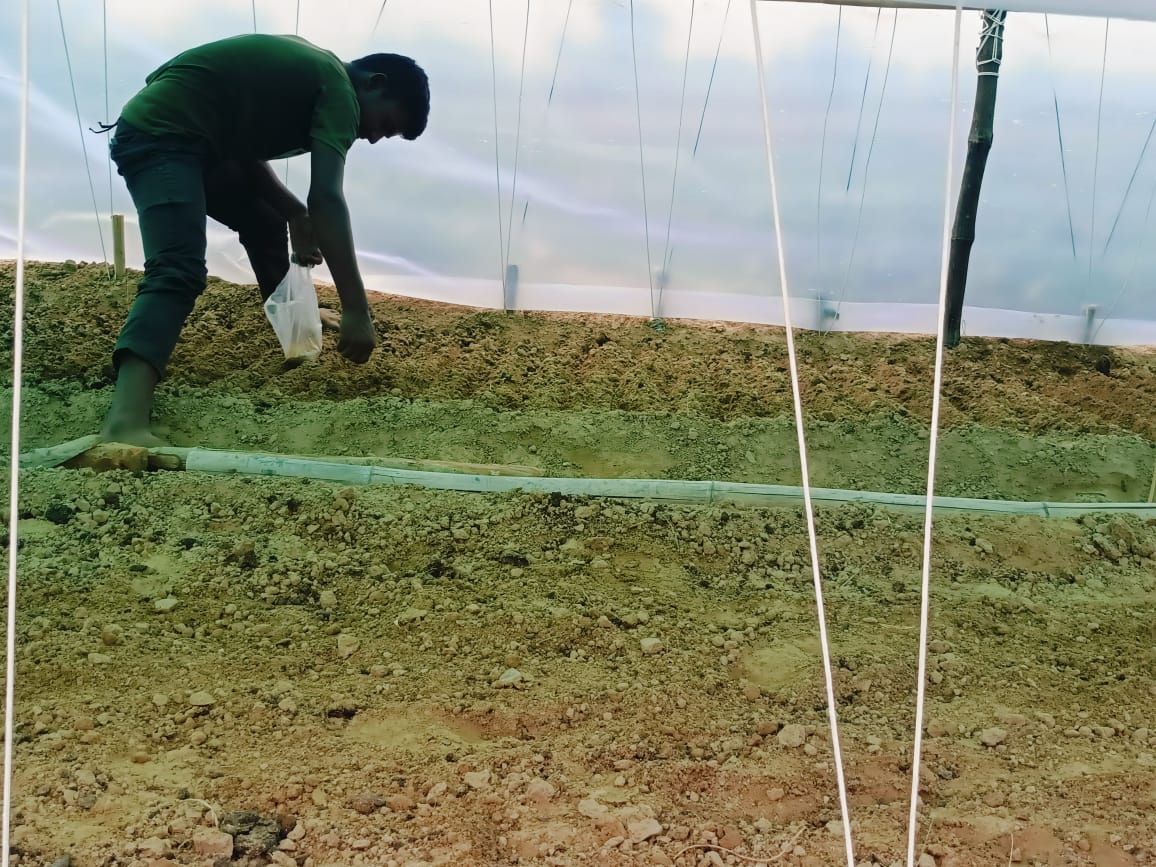Boosting farmers’ income and reducing carbon footprint through solar technology application and cultivation of Medicinal and Aromatic Plants (MAPs) in agricultural practices in Tehsil Bakshi Ka Talab, District Lucknow, Uttar Pradesh
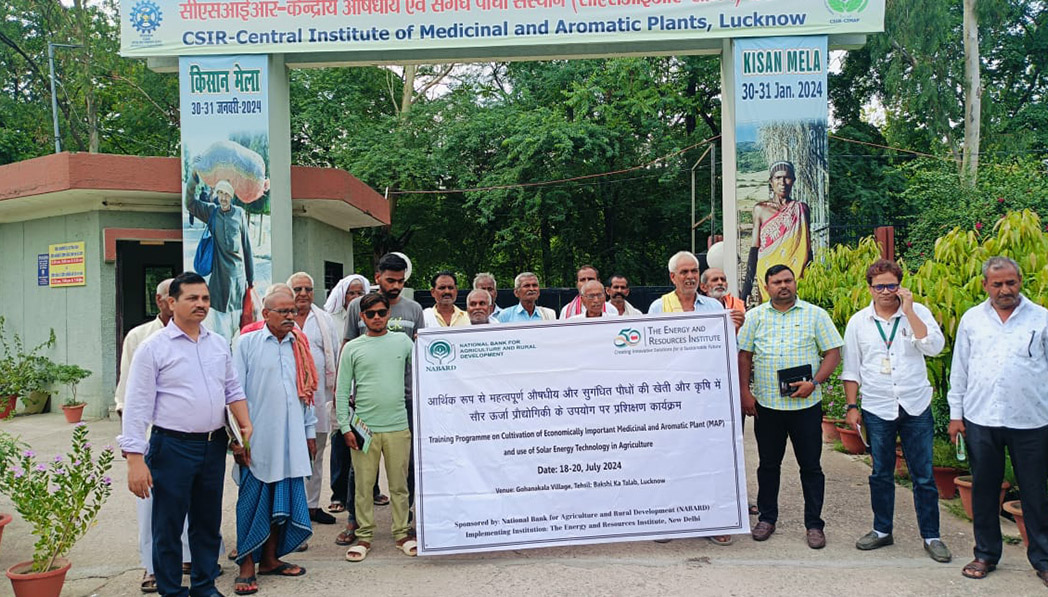
Agriculture sector plays a vital role in the Indian economy, employing nearly half of the country's workforce and contributing significantly to GDP growth. It not only provides food security but also supports various allied industries, such as textiles, food processing, and agrochemicals. Despite challenges like unstable market and climate change, agriculture remains a crucial driver of rural development, poverty alleviation, and overall economic growth.
In the recent past, it has been observed that agriculture has become a losing venture for the farmers. The wild animal invasions in the agricultural fields have increased dramatically in Uttar Pradesh; as a result, farmers suffer significant financial losses. The wild animals often invade the agricultural crops in search of food, especially in the night-time, hence the farmers have to guard their fields day and night, which is very stressful exercise. This inadvertent scenario has put stress on farmers.
Additionally, it has been noticed that many marginalized farmers are unaware of modern agricultural technologies, leading them to primarily engage in mono-cropping. This practice diminishes soil fertility and negatively affects their economic situation. However, if these farmers receive training on the scientific cultivation of medicinal and aromatic plants, it could significantly improve both soil health and their economic conditions.
Project Approach
TERI with support from the National Bank for Agriculture and Rural Development (NABARD) implemented a project in Tehsil Bakshi Ka Talab in Lucknow. The objective of this project is to assist small landholding farmers by enhancing their food security, nutrition, and livelihoods, while also alleviating mental and physical stress to promote a more sustainable quality of life. Additionally, the project aims to foster entrepreneurship among local youth in solar technologies and cultivation of medicinal and aromatic plants through awareness and capacity-building initiatives.
The project also seeks to advance national Sustainable Development Goals by addressing poverty (SDG-1), zero hunger (SDG-2), affordable and clean energy (SDG-7), decent work and economic growth (SDG-8), and climate action (SDG-13).
Key interventions include:
- Installing and commissioning solar fencing as a pilot project around selected farms to safeguard them from wild animals.
- Providing training and skill development in solar technologies and the cultivation of high-value crop species, including:
- Ashwagandha (Withania somnifera)
- Aarkara (Anacyclus pyrethrum)
- Chamomile (Matricaria chamomilla)
- Demonstrating nursery bed preparation and developing economic polyhouses on-site.
- Establishing a Small Primary Processing Centre for a group of farmers (SHG) to process agricultural produce from Medicinal and Aromatic Plants (MAPs).
- Conducting 14 awareness-building programs on solar technologies and sustainable agricultural practices in the region.
